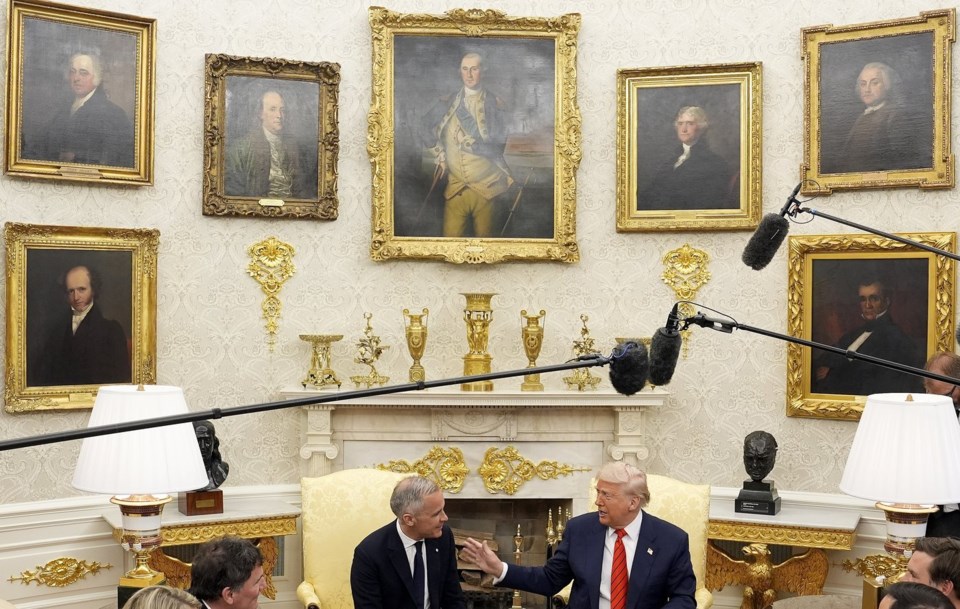Prime Minister Mark Carney met with U.S. President Donald Trump in Washington on Tuesday in their first face-to-face meeting since Carney's Liberal party won the most seats in the April 28 election.
Since returning to office in January, Trump has threatened and imposed broad-based tariffs and talked about wanting to make Canada a U.S. state.
While the two met with reporters at the White House, Trump made a few claims alongside his other comments. Here's how some of them measure up:
—�Ĕ�Ĕ
"We have a tremendous deficit with Canada," Trump said. "It's hard to justify subsidizing Canada to the tune of maybe US$200 billion a year."
A trade deficit — when one country exports less to a partner nation than the partner exports to it — is not a subsidy, any more than buying a product at the store is a subsidy.
Even if it were, Trump's US$200-billion figure strays far from the actual statistics. The trade deficit for goods and services stood at about US$45 billion in 2024, according to the U.S. Census Bureau. And when goods alone are considered, Statistics Canada found that Canada's trade surplus with the U.S. last year was $102.3 billion.
—�Ĕ�Ĕ
Asked whether the North American free trade pact was dead in the wake of U.S. tariffs, Trump replied: "No, it was actually very effective. And it's still very effective, but people have to follow it .... We're going to be starting to possibly renegotiate that, if it's even necessary. I don't know that it's necessary anymore."
Known as the Canada-United States-Mexico Agreement (CUSMA), the trilateral deal was negotiated, signed and ultimately entered into law in 2020 by Trump. At the time, he touted the pact — a reboot of the North American Free Trade Agreement — as "very, very special" and the "largest, fairest, most balanced and modern trade agreement ever achieved."
The biggest violator of that agreement may be the U.S. itself, which recently raised tariffs on auto, steel and aluminum imports to 25 per cent in spite of the deal.
It was set for a joint review in 2026 to decide whether it should continue, something Carney and Trump touched on as a likely possibility for further discussions.
—�Ĕ�Ĕ
Asked whether he believes Canada should become "the 51st state" — a go-to phrase from the president in recent months — Trump dialed down the annexation rhetoric: "I still believe that but, you know, it takes two to tango, right?" he said, adding that a merger between the countries would make for a "wonderful marriage."
He also said the move would be "a massive tax cut for the Canadian citizens."
Canadians have roundly rejected the idea of annexation by their southern neighbour. Just nine per cent of residents wanted Canada to become the 51st state, while 85 per cent did not, according to a Leger poll released in March.
The sentiment appeared clear across all regions, political parties and age groups.
The prime minister expressed that view to Trump on Tuesday:
"If I may, as you know from real estate, there are some places that are never for sale. We're sitting in one right now," Carney said during their Oval Office sit-down.
"And having met with the owners of Canada over the course of the campaign (the) last several months, it's not for sale. It won't be for sale ever. But the opportunity is in the partnership and what we can build together."
If the U.S. and Canada were to form a political union, it is unclear what that would mean for either country's tax regime.
This report by The Canadian Press was first published May 6, 2025.
Christopher Reynolds, The Canadian Press




